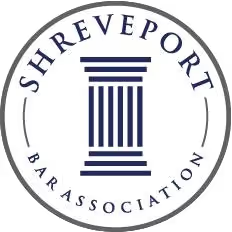What Is a Wrongful Death Claim?
Under Louisiana Civil Code Article 2315.2, a wrongful death occurs when a person dies as a result of someone else’s:
- Negligence
Carelessness or failure to act responsibly (e.g., reckless driving, workplace safety violations). - Intentional Acts
Crimes or deliberate wrongdoing (e.g., assault, homicide). - Strict Liability
Holding a party accountable without proving intent or negligence (e.g., defective products).
A wrongful death claim allows surviving family members to recover compensation for their losses. Our Shreveport wrongful death lawyers are prepared to investigate every detail of your case to help you to get deserved compensation and justice.
Common Causes of Wrongful Death Cases We Handle
Losing a loved one is a profound tragedy, especially when it stems from preventable negligence. Below are some of the most common causes we handle, each requiring thorough investigation and relentless advocacy to achieve justice for grieving families.
Necessary Steps to Take After Losing a Loved One
Taking certain proactive steps can protect your claim and help your legal team construct a seamless case on your behalf.
1. Secure Important Documents
Gathering key documents is essential to building a strong case. Collect medical records, the death certificate, accident reports, and any other evidence related to the death. If you’re unsure what’s needed, we’re here to help you identify and obtain the necessary paperwork.
2. Avoid Insurance Company Pressure
Insurance companies often try to pressure grieving families into accepting low settlements. Don’t give statements or agree to any offers without consulting an attorney first. We’ll handle all communication with insurers to ensure your rights are protected and your family receives the compensation you deserve.
3. Document Financial Impact
Losing a loved one often results in significant financial strain. Keep records of all expenses, including:
- Medical bills
- Funeral costs
- Lost income
- Household services that need replacement
4. Seek Emotional Support
Grief is a heavy burden, and emotional support can make all the difference. Consider grief counseling or joining a support group to help your family cope during this difficult time. We can connect you with trusted local resources that provide comfort and guidance.
5. Consult an Attorney as Early as Possible
Early legal guidance is crucial to protecting your rights and preserving important evidence. The sooner you consult with us, the stronger your case will be. We’re here to guide you through every step of the legal process so you can focus on healing.
Types of Compensation Available in Wrongful Death Claims
Wrongful death claims address both the financial and emotional losses suffered by surviving family members. At Rice & Kendig, we pursue full compensation to cover:
Economic Damages
- Medical bills:
Costs incurred before death, including surgeries, hospitalization, and medications. - Funeral and burial costs:
Expenses for funeral arrangements, burial, or cremation. - Loss of financial support:
Compensation for lost wages, future income, and benefits your loved one would have provided.
Non-Economic Damages
- Loss of companionship:
The emotional loss of a spouse, parent, or child. - Pain and suffering:
Addressing the emotional grief and mental anguish of surviving family members. - Loss of guidance:
Compensation for the loss of parental care, advice, and nurturing.
Our team works closely with economists, medical experts, and life care planners to calculate the full extent of your losses and secure every dollar your family deserves.
Understanding Louisiana Wrongful Death Claims
In the wake of your loss, pursuing a wrongful death claim may be overwhelming. We’ll ensure you understand the process and are kept informed at every step. Here’s what you should know before starting.
Who Can File a Wrongful Death Claim?
Louisiana law strictly defines who has the right to file a wrongful death claim, ensuring that only specific family members may pursue compensation for their loss. The order of priority includes:
- Surviving spouse and children:
These individuals are first in line to file. - Parents of the deceased:
If no spouse or children survive, the parents can pursue the claim. - Siblings of the deceased:
If no spouse, children, or parents survive, siblings can file. - Grandparents:
In the absence of a spouse, children, parents, or siblings, surviving grandparents may pursue the claim.
This hierarchy makes sure that claims are filed by those most closely connected to the deceased.
Statute of Limitations for Wrongful Death Claims
Timely filing is critical in wrongful death cases:
- For deaths occurring before July 1, 2024, families have 1 year from the date of death to file a claim.
- For deaths occurring on or after July 1, 2024, Louisiana’s new law extends the deadline to 2 years from the date of death.
Two years may sound like a lot of time, but it’s important to start your claim as soon as possible to give your legal team time to build your case before the statute of limitations passes.
Comparative Fault
Louisiana follows a 51% comparative fault rule under Civil Code Article 2323, which allows families to recover damages even if their loved one was partially at fault for the incident, as long as the deceased is less than 51% at fault.
However, the compensation is reduced by the percentage of fault attributed to the deceased. For example, if your loved one is found 20% at fault, your damages would be reduced by 20%. If the deceased is 51% or more at fault, no recovery can be made. This law ensures that fault does not entirely bar families from pursuing justice.
Survival Action
Under Louisiana Civil Code Article 2315.1, families can file a survival action to recover damages for the pain and suffering endured by their loved one before death.
This claim is separate from a wrongful death claim and seeks compensation for the physical and emotional pain the deceased experienced between the injury and their passing. With a survival action, the victim’s suffering is acknowledged and accounted for in the legal process.
Struggling After Your Accident? We're Here to Help.
At Rice & Kendig, our Shreveport car accident lawyers have more than 40 years of experience helping clients receive the justice and compensation they deserve. Get your free case review now!
No Fee Unless We Win For You
or Call Us
(318) 222-2772















.svg)










.svg)
.svg)

.svg)


